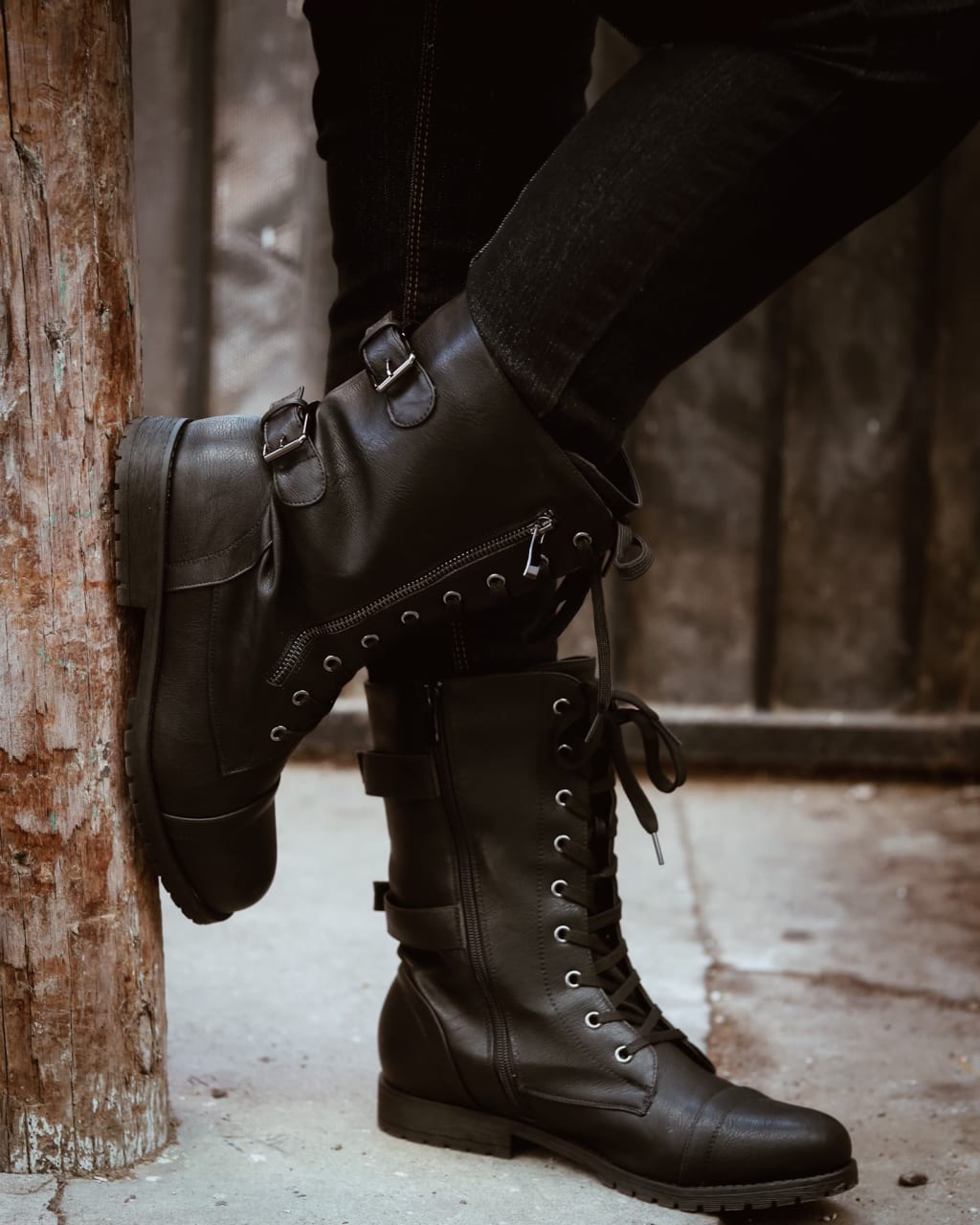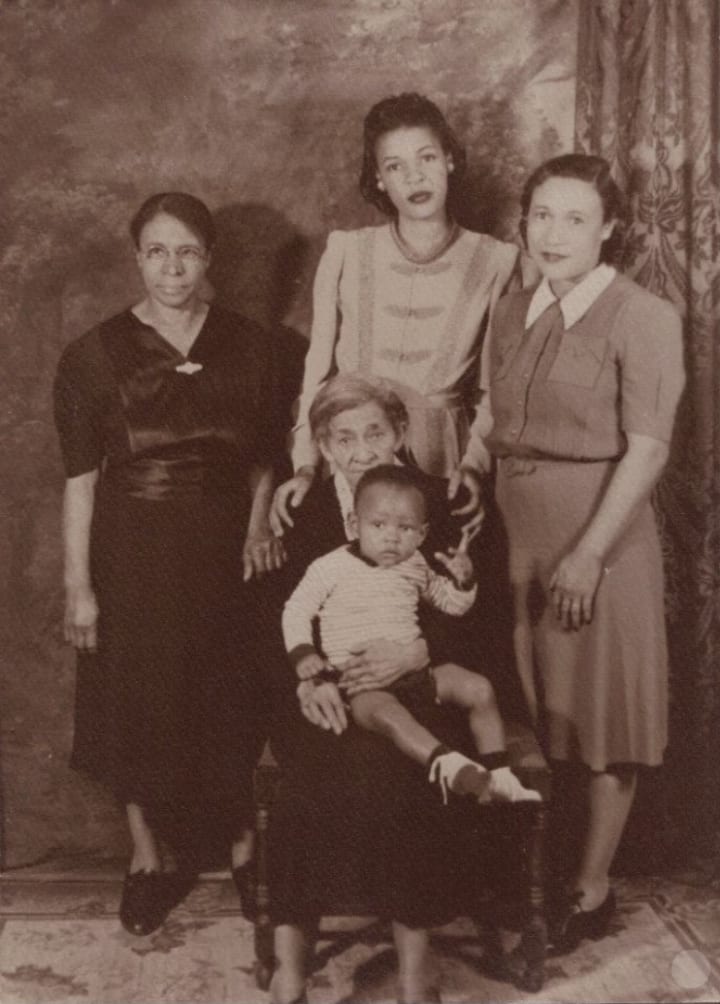
The internet is annoying…incredibly annoying. People get on here re-posting clickbait and saying things they aren’t educated about or just flat out don’t mean. I keep my friend list restricted to people I have actually spent time with in life. Even if we were never close or haven’t talked in years, you are able to read this because for some length of time, at some point in the last twenty-seven years, you and I have shared a space and common interests. It could have been the neighborhood I grew up in, one of the schools I attended, one of the jobs that I had. At one point in time, we had something in common. At one point in time we agreed on SOMETHING.
So as you see my posts about the civil unrest going on in our country, know that I wholeheartedly believe you have a rational mind and an empathetic heart. I know that, because I’ve met you. But we are quite literally in a crisis and the conversation must be had. This is terrifying. I get it. I’m a Black woman living in America. I understand fear. So please just follow me here: exhale. That’s not a metaphor. Literally, exhale. Then put your hand over your heart. How’s it beating? Inhale. How does your head physically feel? Rub your temple. Exhale. Our country is having a collective panic attack. That is not a metaphor. Inhale…exhale. And, when you’re ready, keep reading.
I want to talk to you about bootstraps. It’s a concept most are familiar with, the importance of “pulling yourself up by your own bootstraps” in the land of the free. As with most things that stand the test of time, the meaning of this particular phrase has evolved since its conception. Picture this for a second: you’re stuck in the mud, you have on boots, they have straps. How do you get out? Do you literally bend down, grab hold of both your shoes…on your feet…upon which you are standing…and pull? You’d go nowhere, except maybe flat on your face. The phrase, when first implemented, implied a foolishness of sorts. Pulling yourself up by your BOOTSTRAPS? Impossible. Only a fool would think that would work. A fool, or an individual who only had the impossible at their disposal. I’ve been thinking about it a lot over the past couple of months, and it’s dawned on me that an unsettling amount of people seem to be unaware that our high and mighty straps come from boots that aren’t actually our own. Let me backup…
I am a twenty-seven year old biracial Black woman who grew up in the suburbs of Southern California. I still live and work in the suburbs of Southern California. My elementary school was a magnet school with a space program sponsored by NASA. I took dance lessons three times a week at the local studio and spent my weekends at whatever baseball park my brother’s team was scheduled at. I was a girl scout and GATE kid turned member of the self proclaimed “AP Nerd Herd”. I scored scholarships to my first choice college, which just so happened to be a top performing film school. I’ve had a blessed life. From the outside, it’s easy to assume I don’t have a leg — or boot — to stand on when it comes to conversations about race and hardship. However, we are experiencing the strangest time we never thought could exist outside of a movie screen and the need for a history lesson — and reality check — might be in order.
In 1837, on a plantation in Gumberry, North Carolina, Annie Buffalowe gave birth to a son. She named him James Barham and, eight years later, he and four of her remaining five children were sold away. James ended up in Mississippi where he lived in slavery for nearly two decades. When the Civil War broke out, a man who thought he could own other people forced James into the Confederacy as his cook. They were stationed at a fort on the Mississippi River when the slave owner’s father decided he needed James for something else, somewhere else, and took him away. Shortly thereafter, the fort fell. James (by some miracle I have yet to figure out) found himself in New Orleans where he deserted to the Union, fought for, and won his own liberty. Believe it or not, THIS is where the dope part of his story starts. See James had what one might call an elephant’s memory, and upon emancipation learned how to read and write with the sole purpose of finding his family. He said that the first letter he ever received in his life was at 30 years old, in response to one he had written himself inquiring about the whereabouts of his relatives. A former slave writing forbidden letters to the wind, an impossible dream. But y’aaall…that man found them, all of them. He discovered a few relatives were “renting” (code for sharecropping) land on the very plantation from which they were all sold away, so he grabbed hold of those bootstraps, organized the family’s savings and helped them buy it back. Afterwards (let’s just say to celebrate), he went on and founded churches across North Carolina and even a college, from which he eventually received an honorary doctorate. I came across this story in a book he wrote, given to me by my grandmother. James Barham was her mother’s grandfather.
While we’re on the subject of my grandmother, I’ll share a few fun facts about her as well. She grew up during the Great Depression, in a rural military town, attending her Grandpa Barham’s church…well, religiously. She told me once that he took them to church so often, she never needed to go again in her adult life. She put “more than her share of hours in” as far as she is concerned. In case you didn’t catch those context clues, my grandmother knew one of her enslaved ancestors, personally. She told me she always thought it was strange how he only ever bathed in cold water. “That’s just what the slaves were used to,” she would say. The church Grandpa Barham built provided the family and their community with jobs, shelter, and resources in times of need. Grandmother was the first generation of the family to graduate high school, as valedictorian. She went on to college and was valedictorian of that graduating class as well. To bring us back to reality for a moment, this was a Black woman. A Black woman in the Jim Crow south in the early 40’s, with a divorce under her belt, three kids, and three jobs. Valedictorian. The only picture I have of her wedding day to my grandfather is of them at her graduation the morning of. She was wearing her cap and gown. If you haven’t caught the theme of this essay yet, spoiler alert: you are most definitely about to hear about my grandfather.
Grandpa Mac grew up a stuttering orphan in Illinois, the same state in which Grandpa Barham attended school to learn how to read after being mustered out of the Union Army. Those familiar with my family have heard the tales of the army colonel Grandpa Mac would become, but those in my family don’t know much about the stuttering orphan he once was. The stories he told rarely predated WWII. He, a charismatic young man with a few college courses under his belt, was sent to the Philippines. I wish I could tell you he started his military career as an ambitious young man with a dream to change things but the truth is I have no idea. I was told the only reason he made that difficult-by-today’s-standards jump from enlisted man to officer (in a segregated military no less) is because…well all the commanding officers died. Air raid, battlefield promotion, WWII was a REAL one. Then came Korea, and Vietnam, and by the 70’s he had quite literally fought his way up the chain of command until he was made the Post Commander of Fort McNair. A Black man, a Black Colonel, a Black Post Commander at one of the most important military installations in our country, in the heart of Washington DC. This was five years after Martin Luther King was shot down at the Lorraine. And even after all that, they still didn’t want to give him the Post Commander’s house. My grandparents had to fight to live in the home designated to them by the esteemed position they held. Where was my dad during all of this? Yup, keep reading.
My father, born in 1954, is the first generation of my family to not personally know one of our enslaved ancestors. Go ahead and read that sentence again and let it sit in your spirit for a minute. My father is the first in my direct bloodline to not have personal memories with a former slave. He was born in Germany, where his father was stationed at the time. He went to all white schools because that’s where the military wanted their children educated, in the white schools. Remember the Titans? That was my dad’s high school. He missed the drama of the desegregation scene as he was still in the process of transferring (army brat life), but Gerry Bertier was one of the first to greet him with a hug upon his arrival. They went to middle school together. He graduated high school, then college, served in Korea for a time before eventually moving to California to stay with his brother. He met my mother, a young, white, aspiring actress, his first day in LA. Remember his birth year. My parents were thirteen years old when interracial marriage was legalized. If my dad happened to have a crush on one of the girls at his mostly white schools growing up? Y’all ever hear of Emmett Till? Emmett Till was a fourteen year old boy who was murdered the year after my father was born for allegedly whistling at a white girl. My father was thirteen before the Supreme Court of the United States decided it was possible for someone like him to marry someone like my mother. As if by some divine commentary, my brother would eventually be born on Loving Day.
We’ve trickled on back down to me now, just another millennial from the suburbs. Just out of curiosity, was that how you thought I got here? While we’re focusing on me again, let’s just go ahead and get into it. I’m mixed which, according to my cousin, means I look like “whichever non-white person you’re standing next to”. I literally don’t even know how many countries I’ve been told to go back to. As far as racism goes, I’ve only experienced the soft-core stuff. As a person who doesn’t look anything like her mother, trust me when I say most of y’all have never truly assessed how you REALLY feel about adoption. Also just fyi, your curious side eyes are creepy. Also on my creepy list is a professor who once asked me if I was Puerto Rican (I’m not) and then subsequently if he could sniff me. To this day I couldn’t tell you what the hell he meant by that. One evening, during my freshman year, I took a walk through the neighborhood surrounding my college with a group of classmates (all Black). We were decked out, head to toe, in school paraphernalia including lanyards from which hung our school IDs. When we got back to campus, the guard at the security gate saw us coming and turned the light to guard shack off. We watched him watch us walk by in silence. That was in 2011. Two years later, Trayvon Martin would be killed for walking around his neighborhood with skittles. A couple years ago I was involved in a hit-and-run in which I was sent spinning 360s down the freeway only to look up and see the guy who hit me speeding away. I called my mom who, instead of telling me to file a police report, told me to drive the car home (half torn off bumper and all) because she didn’t want me to be the Black girl on the side of the road in the middle of the night with an unknown cop on the way. My best friend, a white man, followed me home to make sure I got back safe. That was in 2018. Three years prior, Sandra Bland was killed on her way to a job interview. I currently work with a woman who wears blackface in her time off. This white woman’s profile picture displayed her with her face painted shoe polish black, wearing an afro wig with a large hoop ring through her nose. I can’t be sure because no one ever cared to take a picture, but I’m fairly certain that’s not what Annie Buffalowe or the women of her time looked like. It’s certainly not what I look like. At the last meeting the same woman announced to a room full of Black people that she’s going to wear her MAGA mask to work. I’m getting my BLM mask made now. It might be another good time to exhale if you find your chest is feeling tight. Did you take a quick breath in right after? Slow down, it’s going to be okay.
I want you to get a good long look at the portrait I’ve included below. We call it “The Five Generations” photo in my family. The woman sitting is Grandma Barham. She was married to a man who was enslaved for the first thirty years of his life. She was a teenager when President Lincoln issued the emancipation. The baby in her lap, my uncle, was at the March on Washington. This summer, my brother and I marched for George Floyd, Breonna Taylor, Ahmaud Arbery, and I literally can’t even count all the others. I took white friends with me to watch my back. These conversations do not revolve around ancient history. These conversations are about people still alive today, people you know.

My point is this: our country is not going to calm down any time soon. We have some baggage we left in the trunk that has to finally be unpacked. During this time, you are going to hear a lot of stories about a country you may not have been aware still existed. You are going to hear angry voices, sorrowful sobs, hopeful songs, and agonizing screams echoing through the vast dark hole that has become social media. One of the great lies you’ll hear is that people who look like me and share my history are somehow exaggerating, that what we demand is uncalled for and undeserved, that our pride is arrogance. The truth is simple.
We are more confident, because we have to be. We are more resilient, because we have to be. Yes, we even are stronger. We HAVE to be. But that doesn’t mean that you’re not strong. That doesn’t mean we don’t still value and need you. There are just muscles you have never been required to work out in order to get where you are. That is the only reason ours are bigger. And trust me, you don’t want to go to that gym. You will NEVER be required to step foot in that gym. So instead of trying to out flex us, why not get rid of the reason we need these muscles in the first place?
Progress is not comfortable. That is not a euphemism. That is not a platitude. That is a fact of life. Progress is not comfortable, but it is necessary for the survival of our species. We are currently walking in our ancestors shoes. They’re not here to pull these straps anymore, so it falls on us to do the impossible.
Check your boots, then get to work.






Comments
There are no comments for this story
Be the first to respond and start the conversation.